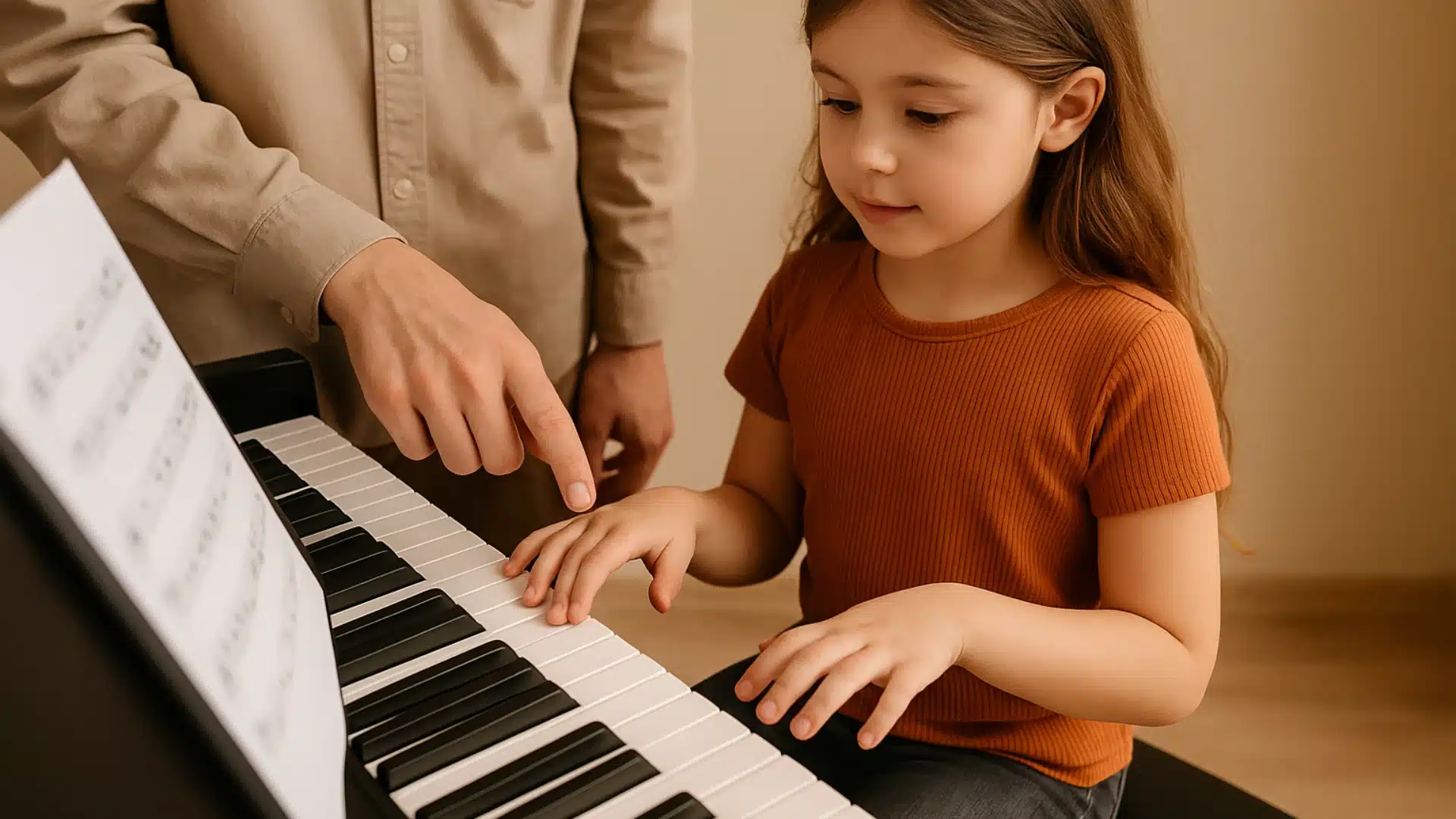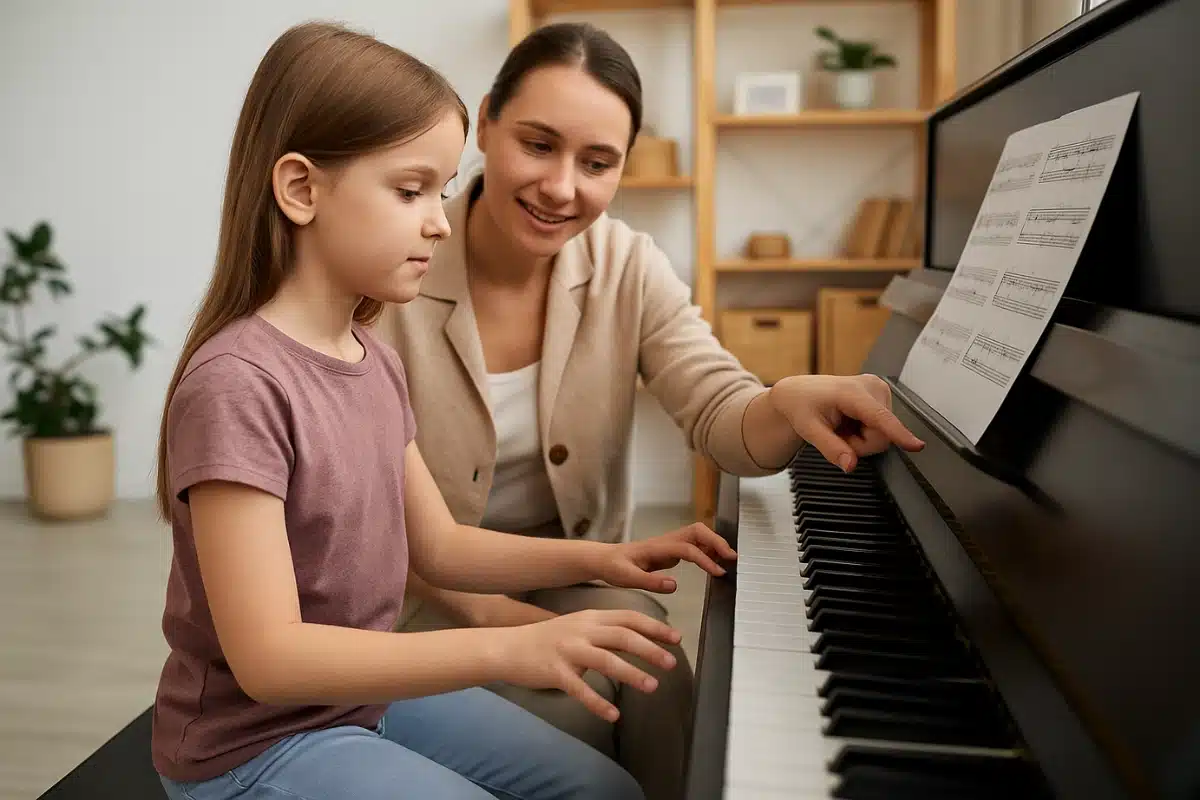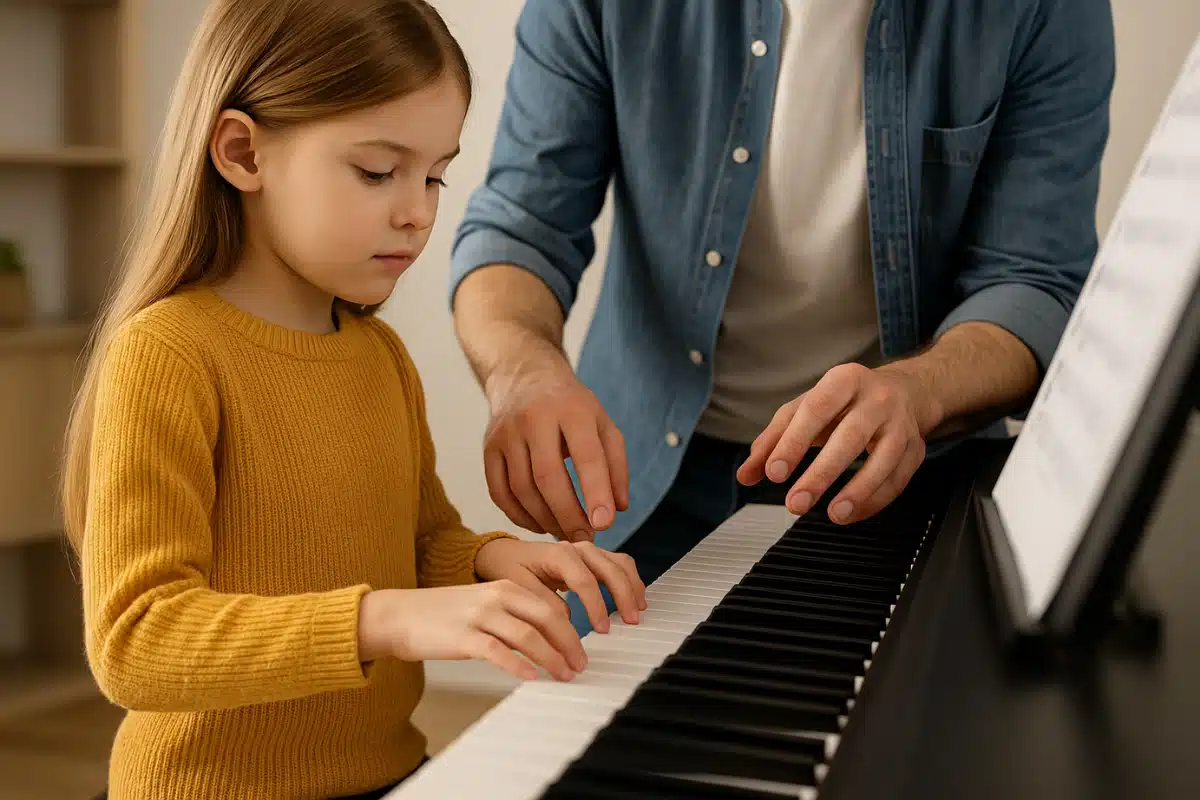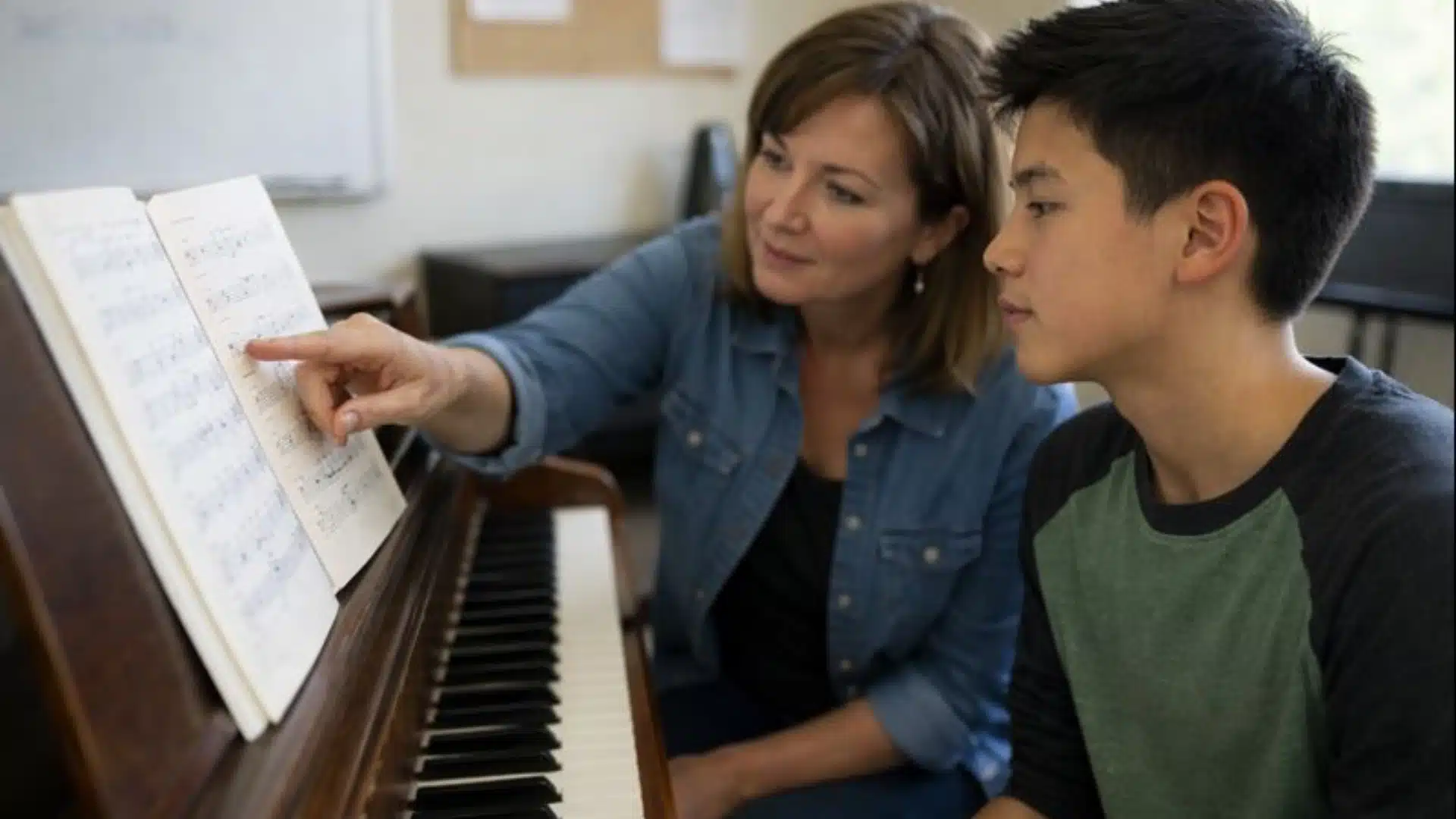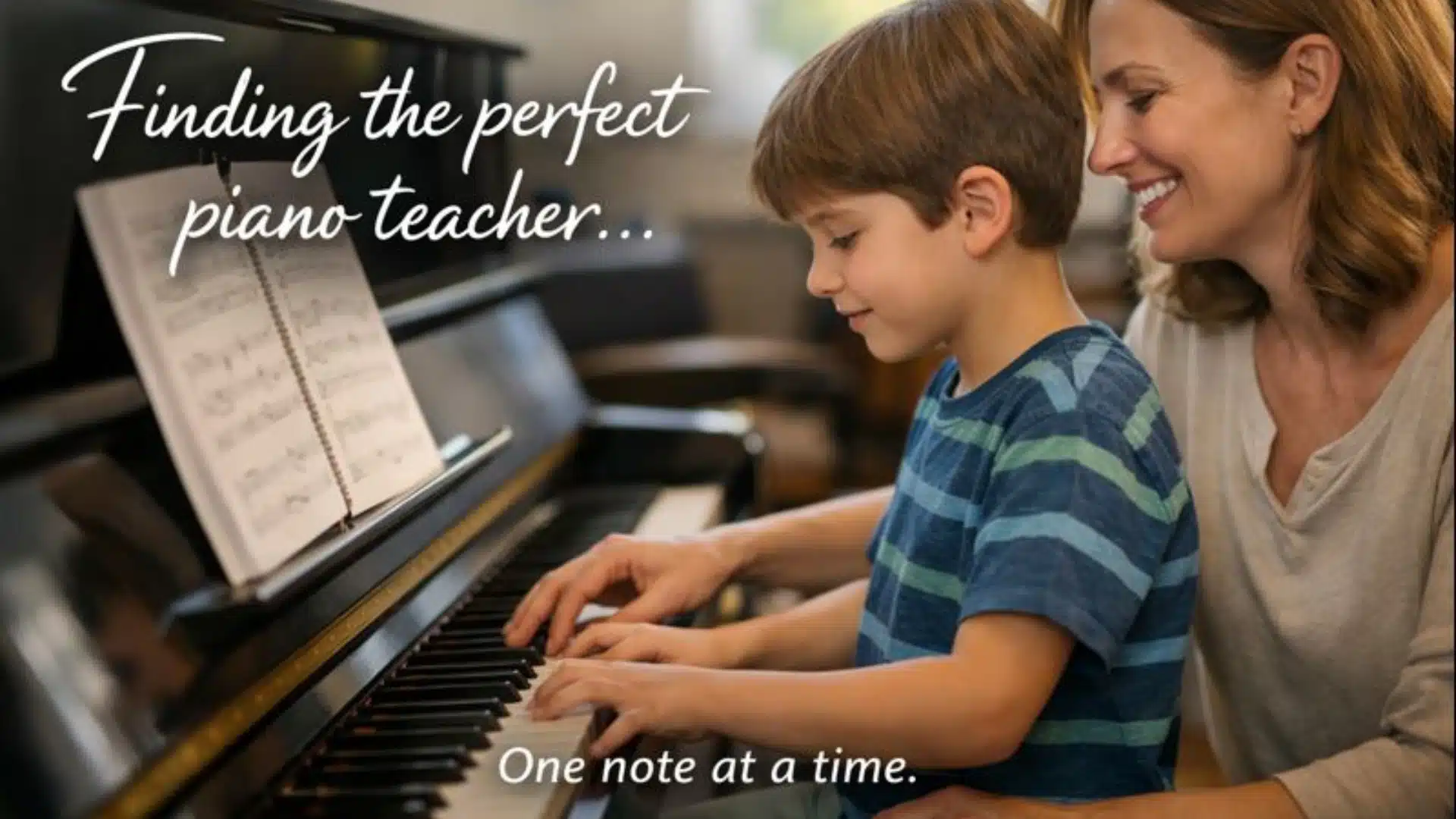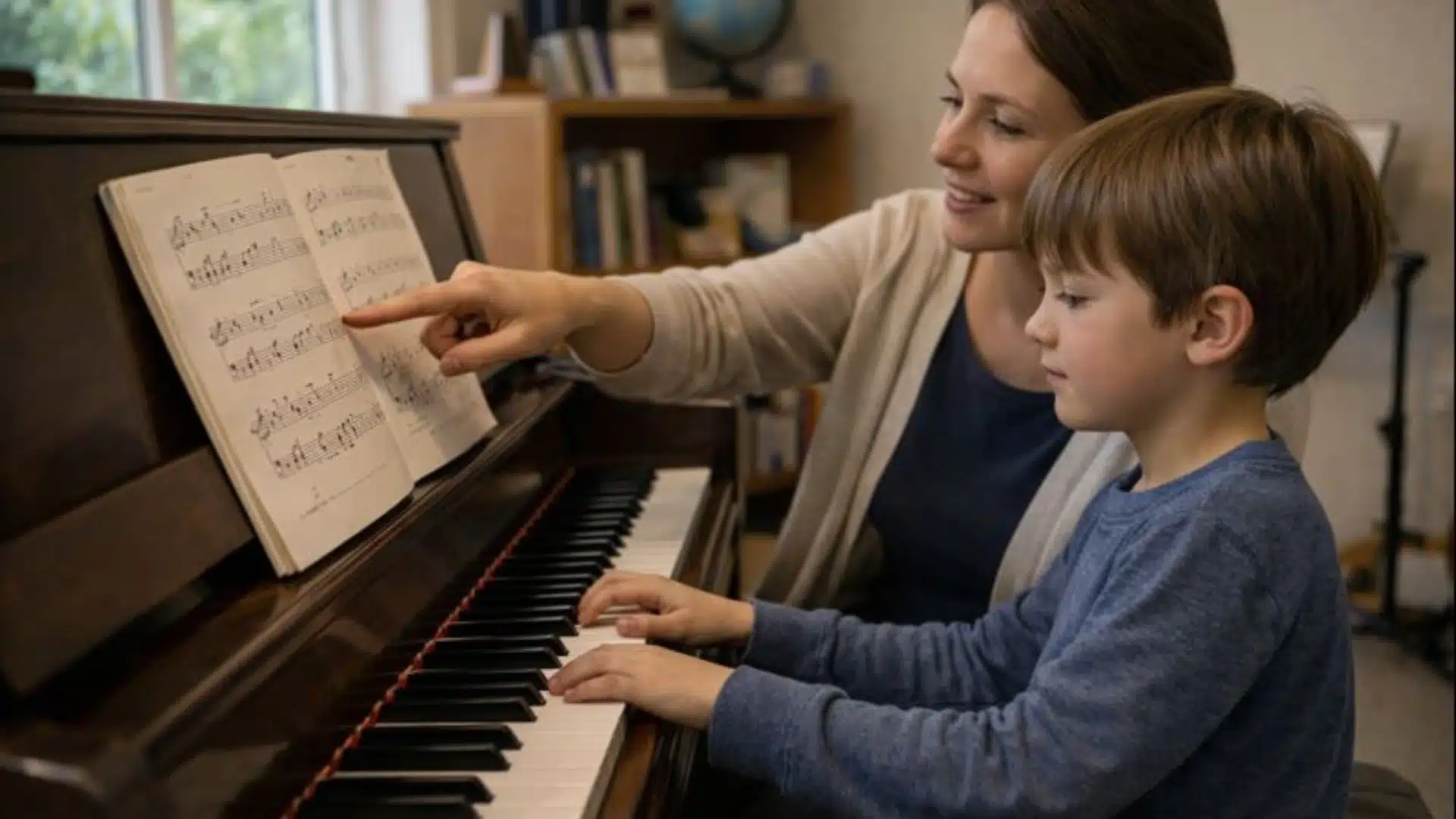Teaching your child to play the piano can be one of the most rewarding experiences for both of you. Whether you’re a parent with a musical background or someone who wants to teach kids piano in a fun and relaxed way, learning piano at home can be a joyful and enriching journey. However, let’s be honest, keeping kids focused, motivated, and enthusiastic about piano lessons can be challenging. The good news? With the right approach, you can turn practice time into playtime and help your little one develop a lifelong love for music.
Why Teaching Piano to Kids at Home Is So Valuable
Music education does more than teach rhythm or notes; it builds focus, patience, and creativity. Studies show that kids who play instruments often perform better in math and problem-solving. But beyond the science, it’s about connection. Sitting together at the piano, sharing laughter over a clumsy note, or celebrating a new song learned, it’s an experience that strengthens your bond.
When children learn piano at home, they feel safe experimenting and making mistakes. This creates an ideal environment for building confidence and expressing creativity. If you’d like to take the next step, check out our latest blog on Piano Lessons for Kids to discover more ways to make learning music fun and inspiring.
Getting Started – Setting Up the Perfect Learning Space
Choose the Right Piano or Keyboard
If you’re starting, you don’t need to invest in a grand piano right away. A full-sized keyboard with weighted keys can work beautifully for beginners. Look for one that mimics the feel of a real piano. This helps little fingers get used to proper pressure and technique.
Keep the Piano Area Inviting
Kids learn better when they feel comfortable. Add good lighting, a proper bench height, and a few fun stickers for progress rewards. Keep sheet music within easy reach and avoid distractions, such as TV or phones, nearby.
How to Teach Kids Piano Without Overwhelming Them
Let’s be real, trying to teach kids piano can feel like juggling energy, attention spans, and patience all at once. Start with short, engaging lessons, around 10 to 15 minutes at first. Focus on easy songs, clapping rhythms, and fun exercises rather than technical drills. Children respond to joy and curiosity more than structure in the beginning.
Start Simple, Stay Fun
Keep lessons lighthearted. Turn each session into a mini adventure mixing short songs, rhythm claps, and fun melodies. When kids associate learning with excitement, they naturally stay curious and eager to improve.
For instance, teaching “Mary Had a Little Lamb” or “Twinkle Twinkle Little Star” allows them to feel success early. Celebrate those little wins, it keeps motivation high!
Introduce One Concept at a Time
Don’t flood your child with too many new things in one lesson. Perhaps focus on finger numbers today, then move on to rhythm next time. Consistency beats complexity when it comes to young learners.
Use Colours, Stories, and Games
Turn lessons into adventures. Assign a story to each note: C can be “Cat,” D “Dog,” and so on. Use coloured stickers on keys or notes in beginner sheet music. The more playful the process, the faster kids retain what they learn.
Creating a Practice Routine That Actually Works
Let’s be real, getting kids to practice daily isn’t easy. Between school, playtime, and screen distractions, piano can feel like “one more thing.” The trick? Keep it consistent but flexible.
Try setting the same time every day, even if it’s just 10 minutes after dinner. Make it a calm, happy routine rather than a strict obligation. Use charts, reward stickers, or even small family performances on weekends to make practice exciting.
Building the Right Mindset for Success
Kids mirror your attitude. If you approach the piano with enthusiasm and patience, they’ll likely do the same. Avoid pressuring them to play perfectly. Instead, focus on effort over results, the idea that progress matters more than perfection.
When frustration arises (and it will), remind them that every great pianist once struggled with challenging pieces, too. A little encouragement goes a long way.
Using Online Tools and Resources
We live in a time when parents can find interactive piano lessons, apps, and video tutorials designed for kids. These can be excellent supplements, especially when you want to keep things fresh and varied.
But don’t rely on them alone. Kids need human connection and feedback from someone to notice their hand posture, rhythm mistakes, or finger tension. That’s why enrolling in professional Piano Lessons for Kids at a trusted music school in Vancouver can make all the difference.
The Role of a Piano Teacher in Your Child’s Progress
Even if you’re teaching your child at home, having a qualified piano teacher guide them occasionally can significantly accelerate their progress. A good instructor not only teaches technique but also keeps kids inspired with structured, age-appropriate lessons.
At Music Star Learning Center, for example, teachers understand how to blend fun with discipline, something that’s hard to replicate on your own.
How to Keep Your Child Motivated Long-Term
Set Small, Reachable Goals
Goals could be as simple as “learn one new song each week.” Achievable goals give kids a sense of accomplishment and keep the excitement alive.
Celebrate Progress, Not Perfection
Every note played right deserves recognition. You might record short videos of your child playing over time. It’s motivating for them to see how far they’ve come.
Let Them Choose Songs
Once your child has learned the basics, let them choose songs they like. Whether it’s a Disney tune or something from a movie, personal interest fuels persistence.
Common Mistakes Parents Make When Teaching Piano at Home
Many parents dive in with good intentions but run into avoidable pitfalls:
Expecting perfection too soon. Learning piano takes time and patience.
Skipping fundamentals. Don’t ignore posture, hand position, or reading music; it’s like building a house without a foundation.
Inconsistent practice. Random sessions lead to frustration; structure creates progress.
Not seeking help. Even occasional guidance from a professional music academy in Vancouver can prevent bad habits early.
When to Transition from Home Lessons to a Professional Music School
At some point, your child may outgrow home-based learning. Signs include:
They’ve learned all the basics and crave more challenging pieces.
You’re unsure how to correct technical mistakes.
They want to perform or take exams, such as those offered by the RCM (Royal Conservatory of Music).
This is the ideal time to consider enrolling in a professional music school in Vancouver. With proper facilities, group programs, and trained teachers, students thrive and gain confidence performing in front of others.
How Music Star Learning Center Supports Young Pianists
Located right here in Vancouver, Music Star Learning Center helps children learn piano the right way from first notes to masterpieces. The academy offers personalized Piano Lessons that combine fun, creativity, and structure.
With experienced instructors, a warm environment, and flexible after-school programs, the school focuses on nurturing each child’s unique musical voice. Whether your child is just starting or ready to transition into advanced training, this music school in Vancouver provides everything needed for long-term growth.
Conclusion – Turning Curiosity into a Lifelong Passion
Learning how to teach kids piano at home is about more than lessons; it’s about creating moments that matter. You’re not just helping them press keys; you’re helping them find their rhythm in life.
But if you want to take that next step, professional guidance can make all the difference. Let experienced instructors at Music Star Learning Center nurture your child’s potential in a supportive and inspiring environment.
Ready to inspire your child’s musical journey?
Visit Music Star Learning Center on Google Maps to easily find us, explore our programs, and book a complimentary trial lesson today. Let’s make learning piano fun, creative, and full of confidence right here in Vancouver.
Please book your free trial lesson now and see why we’re Vancouver’s most trusted music academy for kids who dream big.

